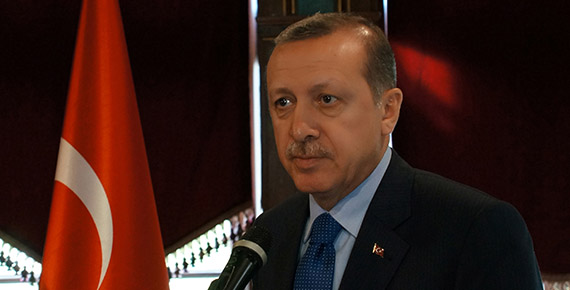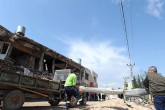When the Justice and Development Party (AK Party) came to power on Nov. 3, 2002, the state of martial rule in the eastern and southeastern regions of Turkey was reaching its 25th year. The state of emergency that was particular to southeastern Turkey before the 1980 coup d’état was expanded to cover the entire country for a period of time. On July 19, 1987, the state of emergency exercised in southeastern Turkey was turned into a permanent state of martial law by legislative changes. Only 27 days after it came to power, the AK Party lifted the state of martial law and ensured the establishment civil administration in these areas. This move, which is by itself a harbinger of fundamental change, can be considered the AK Party’s first move toward a resolution to the Kurdish issue.
Another important step was taken on June 9, 2004. The government had denied even the existence of the Kurdish language for years. The AK Party provided for the broadcasting of one-hour Kurdish language programming daily. And on Sept. 14, 2004, language courses in Kurdish were allowed for the first time in Turkey. Kurdish, which was not only banned, but completely denied, was recognized officially. Aug. 12, 2005, was another turning point on the path to resolution. During a visit to Diyarbakır, Prime Minister Recep Tayyip Erdoğan declared that the government had made mistakes in the past and from that point forward, the Kurdish issue was his “personal issue.”
It was the first time such words had been uttered by a head of state. The outlawed Kurdistan Workers’ Party’s (PKK) response to these first steps was to carry out attacks on civilians, the responsibility for which it has accepted but not announced publicly. The year following these attacks saw Erdoğan become the first civilian prime minister to resist the military during a crisis involving the appointment of the head of the state. In 2008, a legal suit was brought against the AK Party in order to force it to disband. While Erdoğan was occupied with legal troubles, the PKK continued to carry out bloody acts. Despite a bloody 2008, Erdogan provided for the establishment of a national TV channel that broadcast 24 hours a day in Kurdish in 2009.
The same year, the AK Party launched a resolution initiative on the Kurdish issue, marking the first time an incumbent party had made such a move. On Oct. 19, 2009, a group of PKK combatants disarmed and came to Turkey to support the resolution process. On Nov. 10, 2009, Erdoğan, despite all the pressure from the opposition, brought the resolution process to the floor of Parliament and opened it for discussions. The PKK’s response to these moves was to carry on more bloody actions, and the judicial tutelage’s response was to shut down the Democratic Society Party (DTP) on Dec. 11, 2009.
The bloody acts tainted the democratic atmosphere of the process and the resolution of the Kurdish issue was shelved once again. The year 2012 was the year PKK suffered heavy losses.
Erdoğan, by launching another resolution initiative, exhibited a pragmatic attitude that is rarely seen in incumbent parties. In 2013, the first phase of the reconciliation process, which required the PKK to retreat beyond Turkey’s borders, is reaching its end without any major obstacles. The AK Party, as the author of many firsts in the resolution of the Kurdish issue, has taken a huge lead over other parties.
[Hurriyet Daily News, 24 May, 2013]
In this article
- Domestic Policy
- Opinion
- 12 September 1980 Turkish coup d'état
- 1980
- 1987
- 2002
- 2004
- 2005
- 2008
- 2009
- 2012
- 2013
- In 2013
- is reaching its end without any major obstacles
- Kurdish Community
- Kurdish Question
- Kurdistan Workers' Party Terrorist Organization (PKK)
- Opposition
- PKK - YPG - SDF - PYD - YPJ - SDG - HBDH - HPG - KCK - PJAK - TAK - YBŞ
- Prime Minister
- Recep Tayyip Erdoğan
- Terror
- the first phase of the reconciliation process
- The President of the Republic of Türkiye
- Turkish President
- Türkiye's Justice and Development Party | AK Party (AK Parti)



